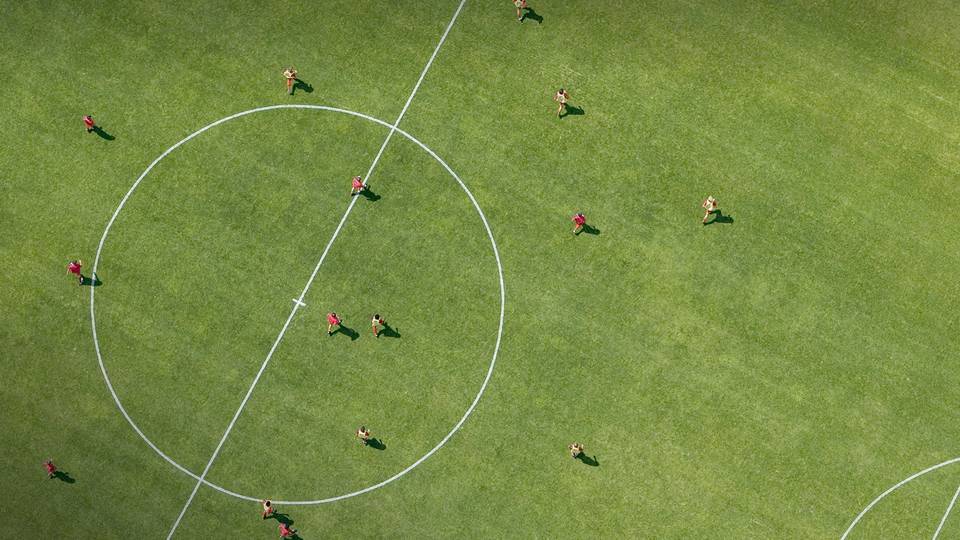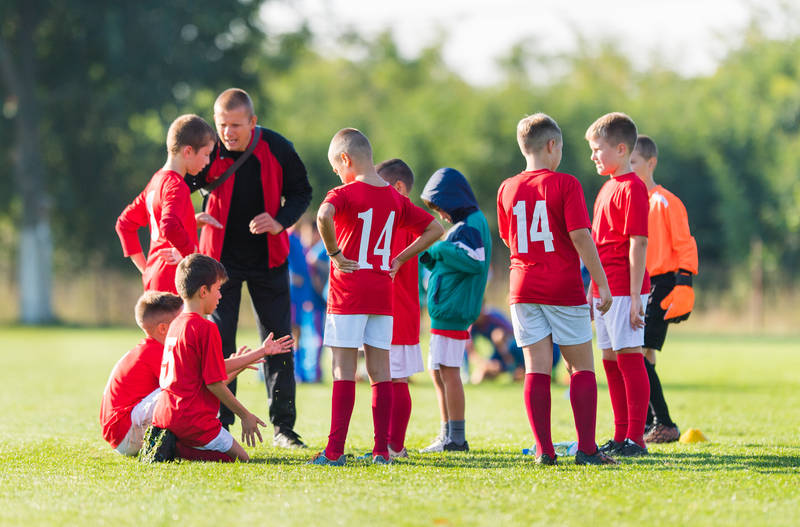Taking your football coaching skills to the next level is a significant step in your development as a mentor for young players. The Level 2 coaching qualification is designed for those who have mastered the basics and are ready to expand their technical knowledge and practical teaching abilities. This intermediate qualification equips coaches with more advanced tactical understanding and position-specific training techniques to effectively develop players within established football programmes.
Many aspiring coaches find the Level 2 qualification to be the crucial bridge between basic coaching knowledge and the more sophisticated UEFA C Licence. It typically focuses on position-specific coaching skills, match analysis capabilities, and deeper understanding of training methodologies suitable for various age groups. The course combines both theoretical learning and practical demonstrations, ensuring coaches can immediately apply their new knowledge on the training pitch.
While Americans might refer to it as "soccer coaching," the principles taught in the Level 2 qualification are universal and vital for grassroots development in the UK. Course participants can expect to learn about increasing player performance through tailored drills, managing team dynamics, and implementing age-appropriate tactical systems that strengthen both individual skills and team cohesion. These capabilities make Level 2 qualified coaches valuable assets to any club or academy setting.
Understanding the Role of a Level 2 Football Coach
A Level 2 football coach operates with greater autonomy and responsibility than those at entry level. This qualification demonstrates a deeper understanding of technical coaching methods, tactical awareness, and the ability to independently lead training sessions while developing players both mentally and physically.
Key Responsibilities
Level 2 football coaches take on significant responsibilities within their clubs or organisations. They independently plan, deliver and evaluate coaching sessions without constant supervision from more senior coaches. This includes:
- Developing season-long training programmes with clear objectives
- Leading team selection and match-day management
- Providing constructive feedback to players on performance
- Communicating effectively with players, parents and other coaches
- Implementing the club's coaching philosophy while adapting to player needs
These coaches often mentor assistant or Level 1 coaches, helping develop the next generation of football educators. They must balance competitive elements with player development goals, ensuring the training environment remains positive and constructive.
Skill Development and Player Education
Level 2 coaches possess deeper knowledge of technical and tactical elements necessary to develop footballers holistically. They understand age-appropriate training methodologies and can effectively teach:
- Advanced technical skills (passing variations, shooting techniques, defensive positioning)
- Tactical concepts such as team shape, transitions and game management
- Decision-making processes in match situations
- Physical development aspects including strength, agility and endurance
- Mental resilience and psychological aspects of performance
These coaches utilise various coaching styles, from guided discovery to command style, depending on the learning objective. They craft sessions that progressively build skills through deliberate practice with appropriate challenge levels.
Good Level 2 coaches recognise that player development isn't linear and provide differentiated activities to accommodate various ability levels within a single session.
Safety and Compliance
Safety remains paramount for Level 2 coaches who take on greater responsibility for risk assessment and management. They must:
- Conduct thorough venue and equipment safety checks
- Maintain appropriate coach-to-player ratios
- Hold valid safeguarding certifications and first aid qualifications
- Understand and implement emergency procedures
- Keep accurate records of incidents, injuries and attendance
Level 2 coaches must adhere to the FA's Respect programme guidelines and promote positive behaviours among players and spectators. They follow clear procedures for reporting safeguarding concerns and maintain appropriate professional boundaries with players.
In the rare contexts where football is referred to as soccer in the UK, these coaches still maintain their professional standards and ensure safe participation for all involved.
Developing a Coaching Philosophy
A coaching philosophy provides the foundation for all decisions made while leading a football team. It reflects your values, guides player development, and determines how you approach both training sessions and match days.
Creating a Vision and Strategy
A strong coaching philosophy begins with a clear vision of how you want your team to play and develop. Consider what style of football you wish to implement and the values that will underpin your approach. Think beyond tactics to include player development, team culture, and long-term objectives.
Ask yourself fundamental questions: What do you stand for as a coach? How will you measure success? What playing principles do you want to instil?
Document your philosophy so you can communicate it effectively to players, parents and other coaches. Your philosophy should be:
- Authentic to your personality and beliefs
- Flexible enough to adapt as you develop
- Consistent in application
Regular reflection on your philosophy will help refine it as you gain experience at Level 2 and beyond.
Ethics and Sportsmanship
Ethics and sportsmanship form the moral compass of your coaching philosophy. As a grassroots football coach, you have significant influence over young players' attitudes toward the game.
Emphasise respect for opponents, officials, and teammates. Model appropriate behaviour on the touchline, particularly in challenging situations. Your actions will speak louder than your words.
Incorporate fair play into training sessions through specific exercises that reward sporting behaviour. This approach teaches that winning isn't everything in football.
Discipline and dedication should be core values, but balance them with enjoyment. Young players who enjoy their football are more likely to continue playing and developing.
Consider how you'll handle issues like playing time, selection decisions, and feedback. Clear ethical guidelines help navigate these potentially difficult situations consistently.
Technical and Tactical Session Planning
Effective technical and tactical session planning forms the backbone of successful football coaching at Level 2. The FA's Four Corner Model provides a structured approach to developing well-rounded players by incorporating both technical skills and tactical understanding into training sessions.
Planning Effective Training Sessions
When planning technical and tactical sessions, begin with clear, measurable objectives. Each session should progress logically, starting with simple technical drills before advancing to more complex tactical concepts.
Create a balance between skill development and game-related scenarios. For example, you might begin with passing drills focusing on technique before progressing to small-sided games that emphasise passing lanes and decision-making.
Incorporate width and depth concepts into your training. Players need to understand spatial awareness and how to create passing opportunities through intelligent positioning.
Session plans should include:
- Warm-up: Related to the session's technical focus
- Technical component: Focused skill work with clear coaching points
- Tactical application: How the technique applies in game scenarios
- Conditioned game: Reinforcing learning points
Adapt sessions based on individual player considerations and previous performance.
Match Analysis and Adaptation
Match analysis provides crucial insights for developing targeted technical and tactical sessions. Observing matches helps identify specific areas where players need improvement, both individually and as a team.
Use simple notation systems to track key performance indicators during matches. This might include:
- Successful/unsuccessful passes
- Defensive actions
- Goal-scoring opportunities
- Positional awareness
After analysis, adapt your session plans to address identified weaknesses. If players struggled with maintaining possession under pressure, design sessions that recreate those scenarios in controlled environments.
The transition between defence and attack often presents coaching opportunities. Design specific drills that focus on quick transitions, with defenders becoming attackers as soon as they win possession.
Remember that in soccer (and football generally), game principles should guide your tactical approach. Sessions should regularly revisit fundamental principles while progressively introducing more complex concepts.
Player Management and Communication
Effective coaching at Level 2 requires strong player management and communication skills. These aspects form the foundation of successful team development and are essential for coaches looking to progress beyond basic tactical knowledge.
Building a Cohesive Team
Team cohesion doesn't happen by accident; it requires deliberate planning and consistent effort. Level 2 coaches must understand group dynamics and how to foster a positive team culture.
Key strategies include:
- Establishing clear team values and expectations
- Recognising individual strengths and allocating roles accordingly
- Creating training sessions that promote collaboration and trust
- Implementing team-building activities outside regular training
Effective coaches balance individual player development with team objectives. They understand that different players respond to different motivational approaches.
By rotating leadership responsibilities among players, coaches can develop leadership qualities throughout the squad. This approach helps players take ownership of their performance and contributes to a stronger team identity.
Effective Communication Techniques
Communication is perhaps the most critical skill a Level 2 football coach must master. Clear, consistent messaging helps players understand expectations and improves performance.
Essential communication techniques:
- Active listening: Giving players full attention and acknowledging their concerns
- Clear instructions: Using concise language with demonstrations when explaining drills
- Constructive feedback: Balancing positive reinforcement with specific improvements
- Body language awareness: Maintaining positive, confident posture during interactions
Coaches should adapt their communication style to suit different players. Some respond better to direct instructions, while others need more supportive guidance.
Team meetings should have clear agendas and encourage player input. This collaborative approach is common in British soccer culture, where player empowerment is increasingly valued.
Digital communication tools can supplement face-to-face interactions, but should not replace personal connections with players. Regular individual check-ins help coaches understand player concerns before they become problems.












